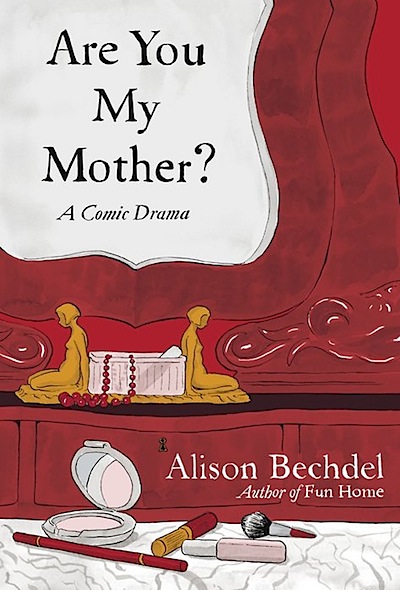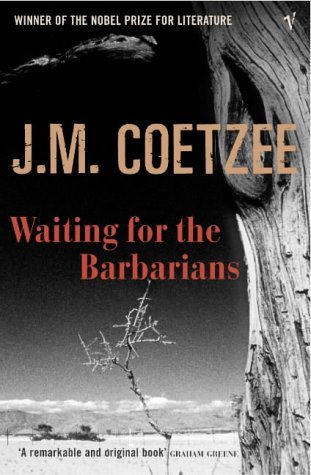'infranovel'
translated by Sam Taylor
I was very excited about this book. Not just because it was the winner in 2010 of the Prix Goncourt in France, but perhaps more importantly because it was placed in my hand with the same enthusiasm (and by the same person) as one of my favourite books last year,
Lazarus Is Dead. The two books don't just share a publisher, they also have something in common stylistically. Both take factual events, real characters and seek to retain veracity whilst also resolutely remaining works of fiction. Both authors speak directly to the reader about the process of writing the book and include references to other artistic treatments of the same subject. But, and it's a big but for me, whilst they may appear to be from the same stable, the two books are very different beasts. Whilst the approach and delivery of Lazarus made it feel like an inventive piece of fiction Binet's 'novel' feels like a piece of non-fiction with too much authorial intervention and not nearly enough invention.
Binet tells the story of
Operation Anthropoid, the assassination attempt on Reinhard Heydrich who was at the time the Nazi regime's Deputy Reichsprotektor of the Protectorate of Bohemia and Moravia. It was a story related to Binet when young by his father and one which he has always been fascinated by. Determined at last to try and find his own way of telling it he begins researching and writing his definitive account and we read this novel which is part-history, part-fiction, part-memoir, part-notebook.
I just hope that however bright and blinding the veneer of fiction that covers this fabulous story, you will still be able to see through it to the historical reality that lies behind.
Heydrich was an almost archetypal Nazi. In fact when looking at the higher ranking members of the party you don't tend to think of Aryan supermen. The diminutive Goebells, the swollen Goring, even the wildly gesticulating Hitler himself; none of these men were visions of the superior race they aimed to be the architects of. Heydrich however, was. Tall, slim and blond, he looks ruthless in his uniform and his CV is an impressive haul of Nazi atrocities. The man at the head of the
SD, the intelligence service charged with rooting out and destroying resistance to the Nazi party, one of the organisers of
Kristallnacht, instrumental in
The Night of the Long Knives, Head of the
Gestapo, Chairmen of the
Wannsee conference at which the Final Solution was discussed and created, the kind of man who gained nickname after nickname: "The Hangman", "The Butcher", "The Blond Beast" and - this one given by Hitler himself - "The Man with the Iron Heart." The novel's title (the author having been warned away from the 'too sci-fi'
Operation Anthropoid) comes from a saying within the SS: Himmlers Hirn heisst Heydrich - Himmler's brain is called Heydrich. A ruthless, intelligent and enthusiastic architect of the Nazi machine; Hitler didn't admire many men in his administration but you get the impression that a small smile appeared on his face every time he thought of Heydrich. Another fine orator, he never shied away from vocalising the harsh realities of Nazi policy
I think Heydrich enjoyed verbalizing the incredible, the unthinkable, as if to give substance to the unimaginable truth. This is what I've got to tell you - -you already know it, but it's up to me to tell you, and it's up to us to do it. The orator, dizzy from speaking the unspeakable. The monster, drunk on the thought of the monstrosities he heralds.
But this isn't just a portrait of Heydrich, some focus goes to the two men who would spearhead the operation to remove him Jozef Gabčík and Jan Kubiš; a Slovak and a Czech respectively who trained in Britain after having fled Czechoslovakia during the war.
Their government in exile along with the British Special Operations Executive helped plan the operation which would see them parachuted behind enemy lines, primed and ready to strike at the heart of the Nazi regime.
But that's enough fact for the moment. Let us get back to the book in question. Binet comments on the book he is writing as he writes it. What kind of book should it be, how best to tell the story; should he perhaps ape the detail of Victor Hugo in order to set the scene - 'I remember one interminable digression in The Hunchback of Notre Dame on the workings of the judicial institutions in the Middle Ages. I thought that was very clever. But I skipped the passage.' Perhaps not then. We learn about his disdain for another winner of the Prix Goncourt, Jonathan Littell's The Kindly Ones (apparently a further twenty pages criticising it were excised at the request of the editor - and can now be read
online), the frustrations of writing fiction based on fact ('I keep banging my head against the wall of history. And I look up and see growing all over it - ever higher and denser, like a creeping ivy - the unmappable pattern of causality') his frustrations when those reading some of the factual details assume it must be made up by the author ("But no, it's all true!" And I think: "Damn, I'm not there yet . . .") and we too are then duped by a chapter that seems to fit in with the factual approach of the book only to be followed by this.
That scene, like the one before it, is perfectly believable and totally made up. How impudent of me to turn a man into a puppet - a man who's been dead for a long time, who cannot defend himself. To make him drink tea, when it might turn out that he liked only coffee. To make him put on two coats, when peraps he had only one. To make him take the bus, when he could have taken the train. To decide that he left in the evening, rather than the morning. I am ashamed of myself.
All of this is kind of interesting, but only up to a point. I kept finding myself frustrated. Just when a section of non-fiction was beginning to really grip an authorial intervention would break the spell. At exactly the moments when you might hope writer of fiction would fill in the gaps in his research he does exactly the opposite.
I'd like to spend my days with the parachutists in the crypt, reporting their discussions, describing how they live from hour to hour in the cold and the damp, what they eat, what they read, what rumours they hear from the town, what they do with their girlfriends when they visit. I would like to tell you about their plans, their doubts, their hopes, their fears, their dreams and thoughts. But that isn't possible, because I know almost nothing about any of it. I don't even know how they reacted when they heard about Heydrich's death, although that ought to make one of the best bits of my book.
This, of course, is the point of the book. Binet wants to raise the themes of truth, storytelling, authorship and the very process of writing itself; but my honest reaction to reading that was often to think "this theorising is all very well but I wish you'd just get out of the way and tell the story". Binet is not nearly as interesting as Binet thinks he is, and even if that was the very thing he wanted to communicate in his exploration of the writer's place in the telling of 'true stories' it isn't a point that needs much repetition before it becomes stale. This view probably makes me sound very old-fashioned (interesting when last week I criticised another author for the very same fault) but perhaps part of it stems from my enjoyment of the book I mentioned at the top of this review. Richard Beard's approach to the telling of the Lazarus story breathed genuine life into something which had become moribund, and never did I feel that he was trying to insert himself as a personality into the proceedings.
This doesn't mean that the book is without successes, only that they were limited for me. Binet's descriptions of the horrific massacre in
Babi Yar, the assassination attempt itself and the thrilling standoff and shootout that followed when the assassins where cornered in a Prague church are compelling. Gabčík and Kubiš only ever remain sketches, it is Heydrich who dominates the book, and in the sheer cataloguing of his ruthless creation and organisation of the police state this book shows quite clearly how influential this man was. You want him to be stopped, and you can't help but want his assassins to get away with it, so whatever it's shortfalls this novel (with its short chapters helping things to zip along - 257 chapters in 327 pages) certainly engages the reader. But (yes it's that but again) we cannot simply call it an accessible history because the author himself is such a strong presence, we cannot call it a successful fiction because the author resolutely refuses to invent too much; Binet himself calls it an 'infranovel'. Whatever that actually means.
Read more...
























